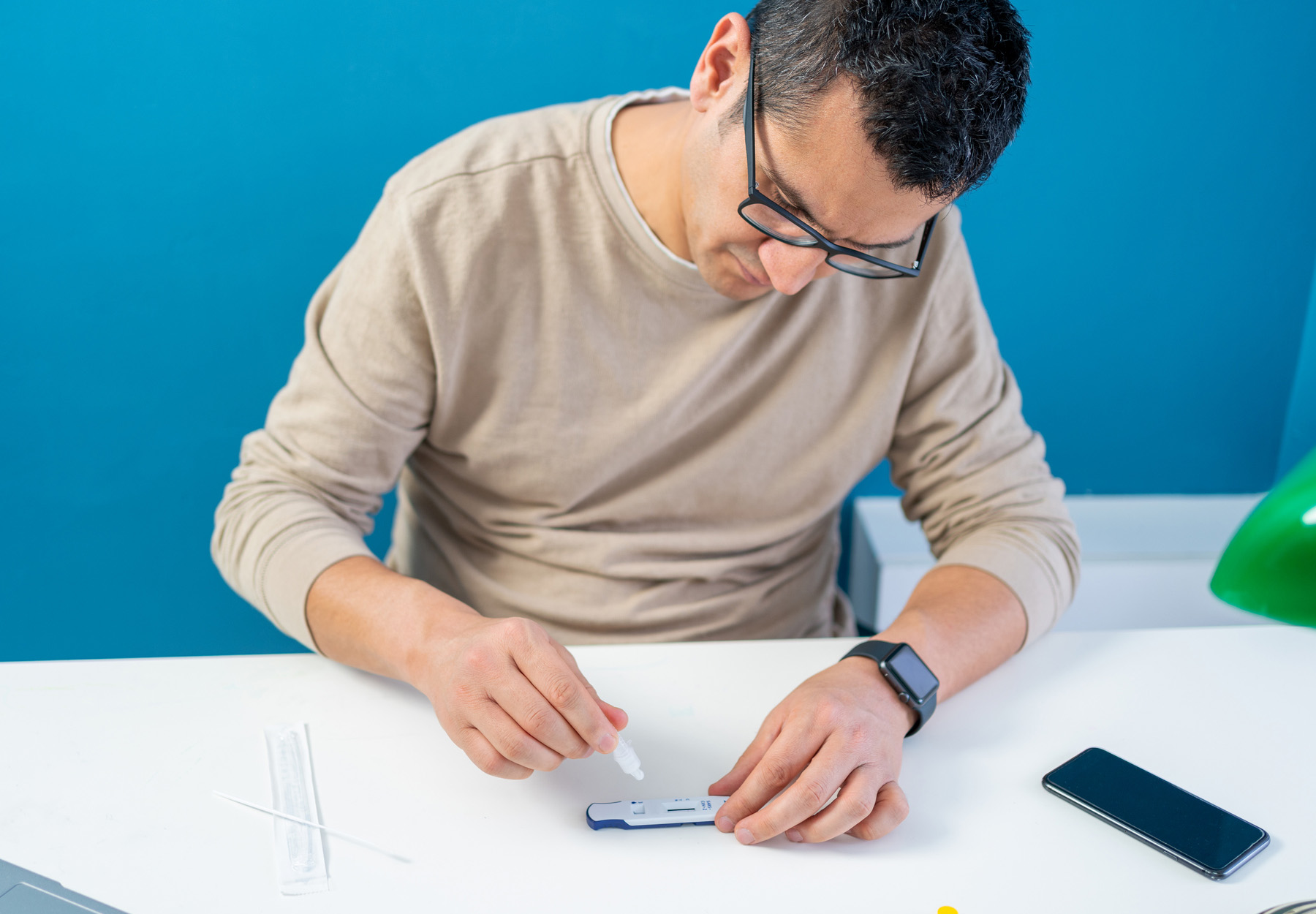Repeat At-Home COVID-19 Antigen Tests to Avoid False Negatives, FDA Says
The agency is advising people to perform repeat, or serial testing after a negative result, regardless of symptoms.

If you test negative using an at-home COVID-19 antigen test, you may not be out of the woods, warns a new US FDA Safety Communication. The agency is advising people to perform repeat, or serial testing after a negative result, regardless of whether they are experiencing any COVID-19 symptoms.
The Risks of False Negatives
While more scalable and cost-effective, at-home tests that detect antigens the body creates to fight SARS-CoV-2 are less accurate than molecular reverse-transcription polymerase chain reaction (RT-PCR) tests that detect RNA from the virus, especially early in the infection before individuals display symptoms. Antigen tests are essentially accurate enough for purposes of screening the asymptomatic. “At-home COVID-19 antigen tests, while not perfect, provide a fast and convenient COVID-19 testing option,” notes the new Safety Communication.
Molecular COVID-19 tests generally detect the SARS-CoV-2 virus at least 95 percent of the time when a person is infected. However, the agency explains, COVID-19 antigen tests are generally expected to detect the SARS-CoV-2 virus at least 80 percent of the time when someone is infected.
The FDA Recommendations
Accordingly, FDA is recommending that people who test negative using an at-home antigen test be aware of the risks of false negatives and perform repeat testing over a longer period of two to three days, just to be sure. The recommendation is based on the latest study results from people with likely Omicron infection showing that repeat testing after a negative at-home COVID-19 antigen test result increases the chance of an accurate result, the agency explains.
Specifically, people who test negative should test again in 48 hours if they have COVID-19 symptoms. If the second test comes back negative but they are still concerned that they may have COVID-19, they can test themselves a third time after 48 hours or consider getting a PCR test or calling their healthcare provider.
Those who test negative with an antigen test who are not experiencing symptoms but still think they have been exposed to COVID-19 should retest 48 hours after the first negative test and, if that test is negative, do a third test 48 hours after that, for a total of three tests, the FDA advises. If concerns remain after a third negative test result, the options are to do a fourth antigen test 48 hours later, get a PCR test, or call a healthcare provider.
In all cases, any positive antigen test result should be taken as accurate and people should conclude that they do actually have COVID-19 and follow the required isolation and other public health protocols.
Bottom Line: At-home antigen tests are still trustworthy but should be used on a repeat or serial basis when they come back negative. That means people should have several tests on hand so they can test themselves more than once. It does not necessarily have to be with the same brand each time, the FDA notes.
****
Here are some of the key new FDA EUAs and clearances that were announced in late July through mid-August 2022:
New FDA Emergency Use Authorizations (EUAs) & Approvals
Subscribe to Clinical Diagnostics Insider to view
Start a Free Trial for immediate access to this article